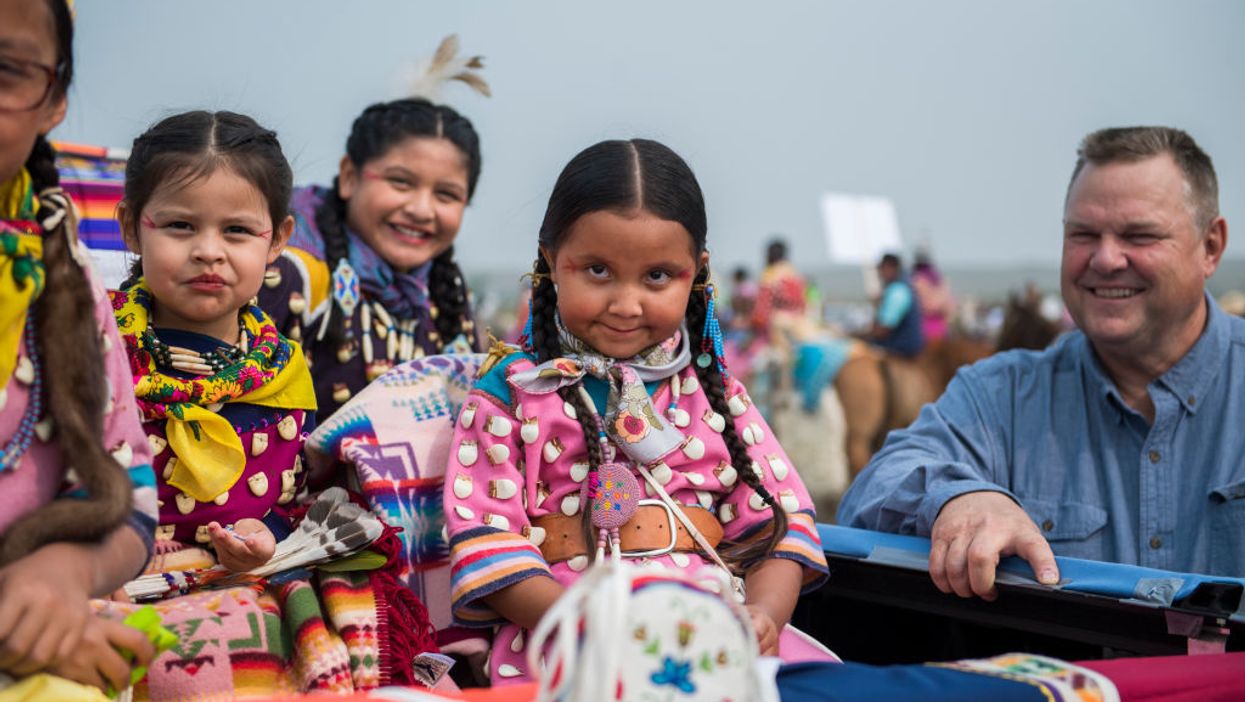The title of an expansive new report on Native American voting rights, "Obstacles at Every Turn," is no exaggeration in light of the document's contents.
The report, written after nine public hearings over two years featuring 120 witnesses, presents a stark look at the barriers faced by the nearly 5 million American Indians of voting age. It also makes clear that many of them will be effectively disenfranchised if the country embraces voting by mail at the expense of in-person polling places.
"The first people on the land should not be the last to vote," concludes the study by the Native American Rights Fund, which advocates for better treatment for tribal members by the federal and state governments.
Most of the 176-page report, released Thursday, is devoted to detailing an array of 29 obstacles, which are based on the general conditions of reservation life but also involve barriers that touch on all aspects of participating in elections — from registering to casting ballots to having those votes counted. These include:
- Isolation. Tribal members often live many miles away from tribal facilities let alone the county offices that offer registration and control voting.
- Bad housing. Homlessness and housing instability are pervasive on reservations and other tribal lands but also among Native Americans living in urban areas.
- Low tech. More than 90 percent of tribal land lacks broadband internet, meaning little access to online registration or information about voting and elections.
- No addresses. Many reservations don't assign traditional addresses, with named streets and numbered homes, which makes it difficult for tribal members to receive and return mailed ballots.
- Limited IDs. Many in Indian Country find it tough to get the identification cards that smooth voting. State motor vehicle and other offices are rarely located near reservations and the cost of an ID card may also be too high for a population disproportionately in poverty.
In addition to all these reasons, the report said, Native Americans are reluctant to embrace the system because of cultural, historical, socioeconomic and language barriers. In general, they have the ear of civil rights groups and liberal lawmakers, who say maintaining in-person options is crucial to preserving the rights not only of native people but also other non-English speakers, the disabled and homeless.
The report states that only 66 percent of eligible Native Americans are registered to vote, leaving about 1 million unregistered.
But even in these reduced numbers, the report notes that Native American votes are often critical in elections across the Southwest and in Alaska and the Dakotas.
Republican Sen. Lisa Murkowski of Alaska and Democratic Sen. Jon Tester Montana are among the politicians cited in the report who have credited Native Americans as providing the votes decisive to their victories.
The report points to legislation, dubbed the Native American Voting Rights Act, as a key way to address the problems outlined. Companion House and Senate bills were introduced in March 2019 but no action has been taken on either one.
The legislation would expand the places where Native Americans could register and cast ballots, allow use of tribal identification for registering and voting, and require approval for actions such as moving a polling place.
The report also calls for mobile registration and voting stations on tribal lands and calls on tribes to reach out to educate their members on the voting process.
American Indians didn't become U.S. citizens until 1924 but some states, mostly in the Southwest, restricted their eligibility to vote for another four decades — mainly by denying the franchise to people living on reservations or enrolled with tribes.
The report says Native Americans have won or successfully settled more than 90 percent of the voting rights suits they've filed over the years. The most prominent such case, settled in February in North Dakota, allows residents of reservations to register and vote this year even if they don't comply with the state's restrictive voter identification law, which requires voters to have an ID with a residential address.




















